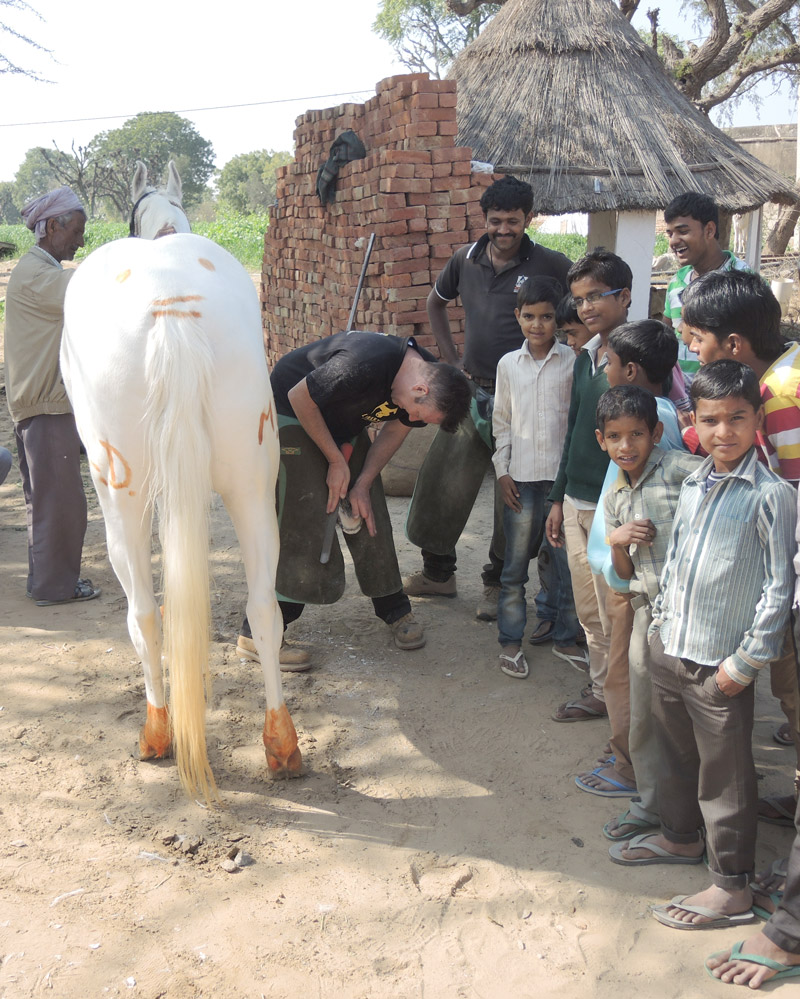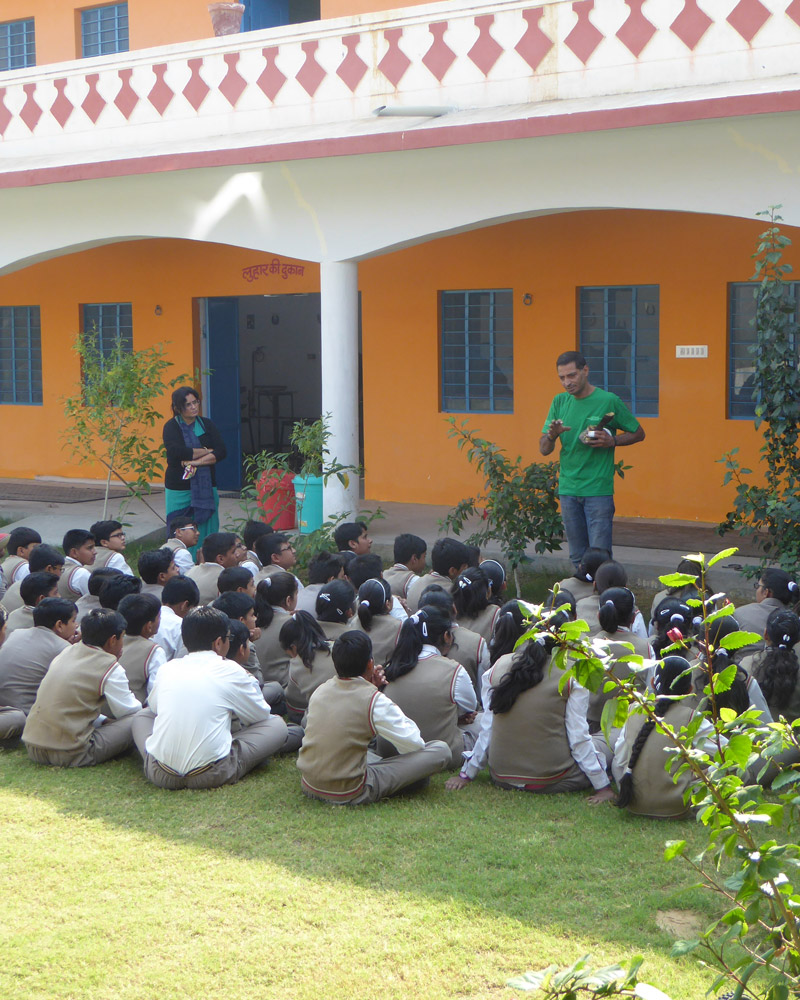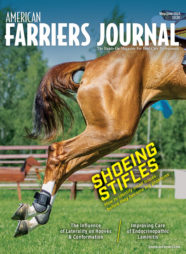 For the Flying Anvil Foundation (FAF), each new year brings another challenge: the pursuit of our teaching programs, the commitment of our volunteers, the training of our new Indian teachers, the faithfulness of our sponsors and new funds research.
For the Flying Anvil Foundation (FAF), each new year brings another challenge: the pursuit of our teaching programs, the commitment of our volunteers, the training of our new Indian teachers, the faithfulness of our sponsors and new funds research.
This past year gave us immense satisfaction, especially in the future sustainability of our Indian farriery school. We have made progress in the transmission of administrative responsibilities of the Institute of Farriery Dundlod to partners of the Indian equestrian world as an Indian Farriery Foundation. When this foundation is formally established in the coming months, more information will be provided on the continuation of its activities and its future relations with the FAF.
Education is self-evident for our cultures. Many countries have not gained the right to quality education where only money makes it accessible. While in European countries, the farriery profession is a living activity that evolves according to the scientific knowledge of veterinary medicine and high technology, it is not the same in India — or even Asia — where the activity is reserved to uneducated people who have little to no access to these dynamic developments. The reality is that a gap separates Europe and Asia in the practice of farriery, and therefore our knowledge is not easy to convey to our colleagues because they lack the necessary ground knowledge to be open to these innovations.
Our challenge at the FAF is to change the image of the farriery (today, an activity reserved to the lower castes in developing countries) and attract more young candidates who are educated and proficient in English to be able to manage their own businesses and transmit their knowledge to new young people attracted to this profession. In Europe, the apprenticeship system has proven successful. The programs are based on old traditions, but also adapt to new developments in the teachings in both craft and technical branches.
For Europeans, all of the practical parts of farriery are taught by a master farrier, a qualified person recognized for excellence in his profession, and the theoretical branches are taught in a vocational school. India has neglected its crafts and manual trades to favor the development of high technology and scientific professionals from universities or high schools. Good craftsmen are increasingly rare.
 The FAF wants to give a new image to the farriery profession by showing an attractive and promising future to this activity. It wants to demonstrate that knowledge, earn the respect of customers and stimulate individuals to progress further. Knowledge works like a magnet — it is easy today to obtain a wealth of information through mentors, teachers and colleagues, and by consulting targeted sites on the Internet, magazines and online courses.
The FAF wants to give a new image to the farriery profession by showing an attractive and promising future to this activity. It wants to demonstrate that knowledge, earn the respect of customers and stimulate individuals to progress further. Knowledge works like a magnet — it is easy today to obtain a wealth of information through mentors, teachers and colleagues, and by consulting targeted sites on the Internet, magazines and online courses.
The FAF will do everything possible to help those who want to access the farriery profession through training. We need young people who are motivated to enter the profession.
They will discover it through the knowledge and the passion of our volunteer teachers. These are craftsmen who have knowledge related to an active life during which they have also discovered the subtleties of farriery. For one who knows how to open eyes, we say “the first mistake is a fantastic teacher,” this lesson will pursue all our lives, it will help us to be modest and not to stop questioning.
 Working with horses is a perpetual renewal. Approaching an animal that can’t tell you what’s wrong forces us to use psychology and intuition. Modesty is a great quality when working with humans or animals. It often proves that extremely competent people build confidence in their customers and their patients.
Working with horses is a perpetual renewal. Approaching an animal that can’t tell you what’s wrong forces us to use psychology and intuition. Modesty is a great quality when working with humans or animals. It often proves that extremely competent people build confidence in their customers and their patients.
What is beautiful in teaching is that working life has a beginning but no end. Just as genes are passed on from generation to generation, there will always be a little something from the mentor that will survive in the generations that we form.
FAF hopes to create passions, wishing to be a knowledge bank for the farrier trainees. We hope this knowledge transmission cycle will become an example in the countries where we teach and a philosophy of life for those who practice the farriery profession.







Post a comment
Report Abusive Comment